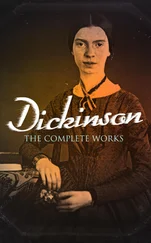“Do you, Mr. Donne? Perhaps you will wonder more when I tell you I am very fond of him.”
“I should say you are not serious in the assertion. Can’t fancy a lady fond of that brute — ‘tis so ugly — a mere carter’s dog. Pray hang him.”
“Hang what I am fond of!”
“And purchase in his stead some sweetly pooty pug or poodle — something appropriate to the fair sex. Ladies generally like lapdogs.”
“Perhaps I am an exception.”
“Oh, you can’t be, you know. All ladies are alike in those matters. That is universally allowed.”
“Tartar frightened you terribly, Mr. Donne. I hope you won’t take any harm.”
“That I shall, no doubt. He gave me a turn I shall not soon forget. When I sor him” (such was Mr. Donne’s pronunciation) “about to spring, I thought I should have fainted.”
“Perhaps you did faint in the bedroom; you were a long time there.”
“No; I bore up that I might hold the door fast. I was determined not to let any one enter. I thought I would keep a barrier between me and the enemy.”
“But what if your friend Mr. Malone had been worried?”
“Malone must take care of himself. Your man persuaded me to come out at last by saying the dog was chained up in his kennel. If I had not been assured of this, I would have remained all day in the chamber. But what is that? I declare the man has told a falsehood! The dog is there!”
And indeed Tartar walked past the glass door opening to the garden, stiff, tawny, and black-muzzled as ever. He still seemed in bad humour. He was growling again, and whistling a half-strangled whistle, being an inheritance from the bulldog side of his ancestry.
“There are other visitors coming,” observed Shirley, with that provoking coolness which the owners of formidable-looking dogs are apt to show while their animals are all bristle and bay. Tartar sprang down the pavement towards the gate, bellowing avec explosion. His mistress quietly opened the glass door, and stepped out chirruping to him. His bellow was already silenced, and he was lifting up his huge, blunt, stupid head to the new callers to be patted.
“What! Tartar, Tartar!” said a cheery, rather boyish voice, “don’t you know us? Good-morning, old boy!”
And little Mr. Sweeting, whose conscious good nature made him comparatively fearless of man, woman, child, or brute, came through the gate, caressing the guardian. His vicar, Mr. Hall, followed. He had no fear of Tartar either, and Tartar had no ill-will to him. He snuffed both the gentlemen round, and then, as if concluding that they were harmless, and might be allowed to pass, he withdrew to the sunny front of the hall, leaving the archway free. Mr. Sweeting followed, and would have played with him; but Tartar took no notice of his caresses. It was only his mistress’s hand whose touch gave him pleasure; to all others he showed himself obstinately insensible.
Shirley advanced to meet Messrs. Hall and Sweeting, shaking hands with them cordially. They were come to tell her of certain successes they had achieved that morning in applications for subscriptions to the fund. Mr. Hall’s eyes beamed benignantly through his spectacles, his plain face looked positively handsome with goodness; and when Caroline, seeing who was come, ran out to meet him, and put both her hands into his, he gazed down on her with a gentle, serene, affectionate expression that gave him the aspect of a smiling Melanchthon.
Instead of re-entering the house, they strayed through the garden, the ladies walking one on each side of Mr. Hall. It was a breezy sunny day; the air freshened the girls’ cheeks and gracefully dishevelled their ringlets. Both of them looked pretty — one gay. Mr. Hall spoke oftenest to his brilliant companion, looked most frequently at the quiet one. Miss Keeldar gathered handfuls of the profusely blooming flowers whose perfume filled the enclosure. She gave some to Caroline, telling her to choose a nosegay for Mr. Hall; and with her lap filled with delicate and splendid blossoms, Caroline sat down on the steps of a summer-house. The vicar stood near her, leaning on his cane.
Shirley, who could not be inhospitable, now called out the neglected pair in the oak parlour. She convoyed Donne past his dread enemy Tartar, who, with his nose on his fore paws, lay snoring under the meridian sun. Donne was not grateful — he never was grateful for kindness and attention — but he was glad of the safeguard. Miss Keeldar, desirous of being impartial, offered the curates flowers. They accepted them with native awkwardness. Malone seemed specially at a loss, when a bouquet filled one hand, while his shillelah occupied the other. Donne’s “Thank you!” was rich to hear. It was the most fatuous and arrogant of sounds, implying that he considered this offering a homage to his merits, and an attempt on the part of the heiress to ingratiate herself into his priceless affections. Sweeting alone received the posy like a smart, sensible little man, as he was, putting it gallantly and nattily into his buttonhole.
As a reward for his good manners, Miss Keeldar, beckoning him apart, gave him some commission, which made his eyes sparkle with glee. Away he flew, round by the courtyard to the kitchen. No need to give him directions; he was always at home everywhere. Ere long he reappeared, carrying a round table, which he placed under the cedar; then he collected six garden-chairs from various nooks and bowers in the grounds, and placed them in a circle. The parlour-maid — Miss Keeldar kept no footman — came out, bearing a napkin-covered tray. Sweeting’s nimble fingers aided in disposing glasses, plates, knives, and forks; he assisted her too in setting forth a neat luncheon, consisting of cold chicken, ham, and tarts.
This sort of impromptu regale it was Shirley’s delight to offer any chance guests; and nothing pleased her better than to have an alert, obliging little friend, like Sweeting, to run about her hand, cheerily receive and briskly execute her hospitable hints. David and she were on the best terms in the world; and his devotion to the heiress was quite disinterested, since it prejudiced in nothing his faithful allegiance to the magnificent Dora Sykes.
The repast turned out a very merry one. Donne and Malone, indeed, contributed but little to its vivacity, the chief part they played in it being what concerned the knife, fork, and wineglass; but where four such natures as Mr. Hall, David Sweeting, Shirley, and Caroline were assembled in health and amity, on a green lawn, under a sunny sky, amidst a wilderness of flowers, there could not be ungenial dullness.
In the course of conversation Mr. Hall reminded the ladies that Whitsuntide was approaching, when the grand united Sunday-school tea-drinking and procession of the three parishes of Briarfield, Whinbury, and Nunnely were to take place. Caroline, he knew, would be at her post as teacher, he said, and he hoped Miss Keeldar would not be wanting. He hoped she would make her first public appearance amongst them at that time. Shirley was not the person to miss an occasion of this sort. She liked festive excitement, a gathering of happiness, a concentration and combination of pleasant details, a throng of glad faces, a muster of elated hearts. She told Mr. Hall they might count on her with security. She did not know what she would have to do, but they might dispose of her as they pleased.
“And,” said Caroline, “you will promise to come to my table, and to sit near me, Mr. Hall?”
“I shall not fail, Deo volente,” said he. — “I have occupied the place on her right hand at these monster tea-drinkings for the last six years,” he proceeded, turning to Miss Keeldar. “They made her a Sunday-school teacher when she was a little girl of twelve. She is not particularly self-confident by nature, as you may have observed; and the first time she had to ‘take a tray,’ as the phrase is, and make tea in public, there was some piteous trembling and flushing. I observed the speechless panic, the cups shaking in the little hand, and the overflowing teapot filled too full from the urn. I came to her aid, took a seat near her, managed the urn and the slop-basin, and in fact made the tea for her like any old woman.”
Читать дальше












